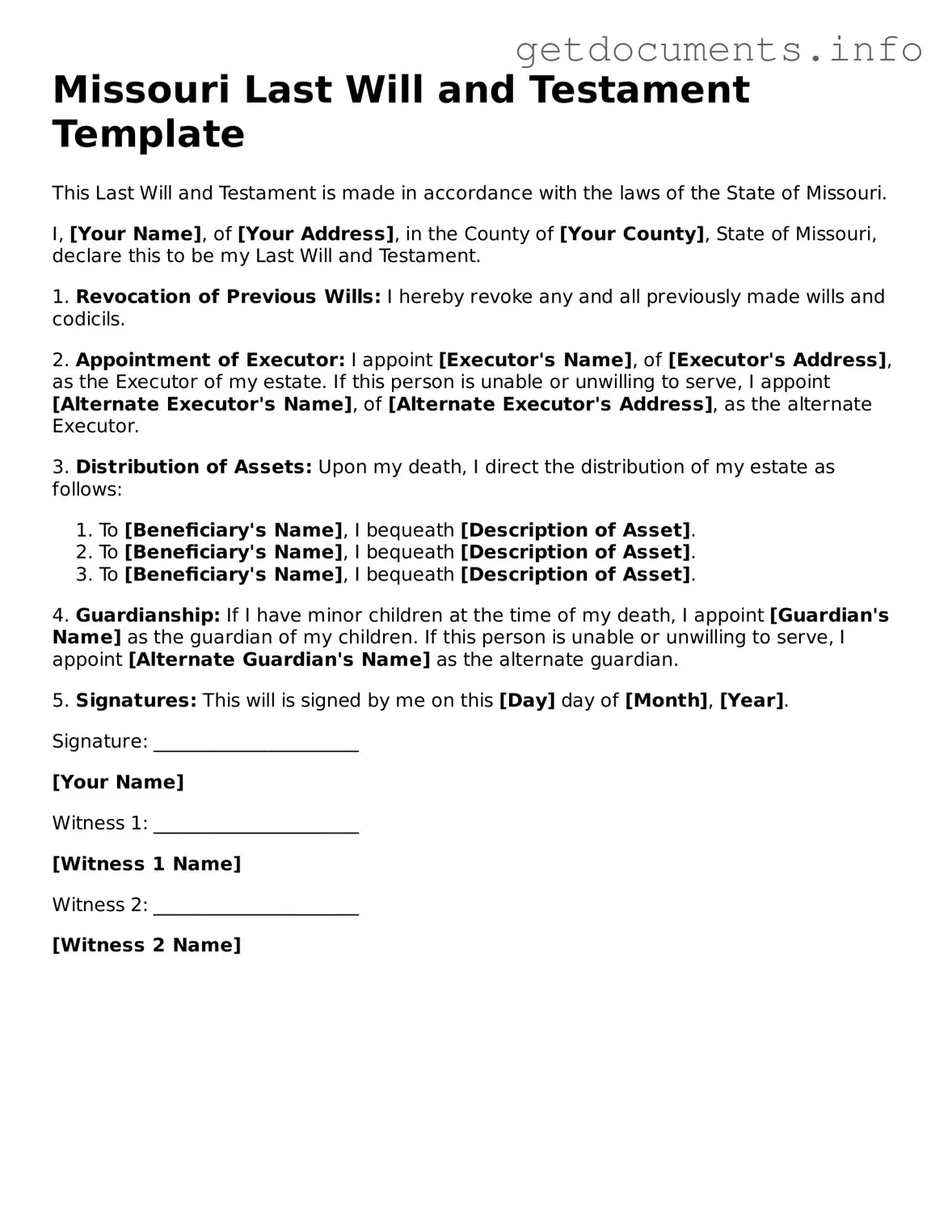Free Last Will and Testament Template for Missouri
A Missouri Last Will and Testament form is a legal document that outlines how a person's assets will be distributed after their death. This form allows individuals to express their wishes regarding the management of their estate, ensuring that their intentions are honored. To get started on preparing your will, fill out the form by clicking the button below.
Access Last Will and Testament Editor

Free Last Will and Testament Template for Missouri
Access Last Will and Testament Editor
Got places to be? Complete the form fast
Fill out Last Will and Testament online and avoid printing or scanning.
Access Last Will and Testament Editor
or
⇩ PDF File
